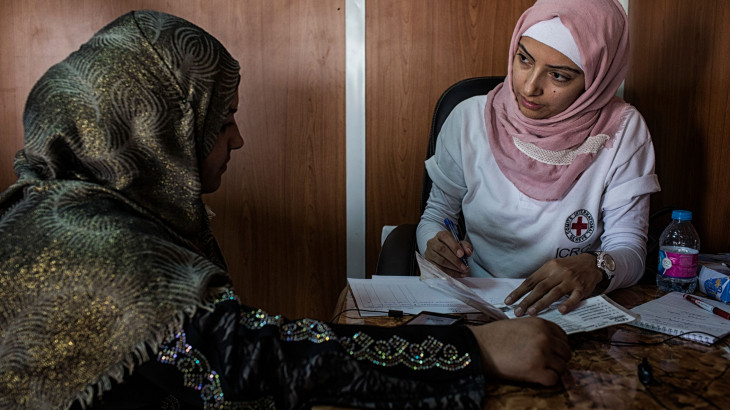The International Day of the Disappeared is a time to reflect upon the anguish of those who have lost loved ones without explanation, and to take action; For each person missing, there is someone waiting for news.
ICRC, Paris – International Day of the Disappeared marks a little-known and complex humanitarian issue: the plight of families searching for loved ones who have disappeared. This year, the International Committee of the Red Cross (ICRC) delegation in France is marking the day with a focus on people who have disappeared as a result of the conflict in Syria. Since 2012, the ICRC has registered tens of thousands of requests to help find missing people. The requests come from all corners of the globe, covering more than 80 countries, but they are just the tip of the iceberg.
Families across Europe, be they Syrian or European, bear the burden of uncertainty – sometimes for years. “The issue of people who have disappeared because of the Syrian conflict is one of the most significant and complex that the ICRC has had to deal with in its modern history. Families have been scattered around the world and, sadly, the conflict shows no sign of ending,” explains Wilhelm Odde, the head of the ICRC’s European family reunification service based in France. “Europeans, as well as Syrians, have disappeared inside Syria. Other Syrian families have become separated en route to Europe.”
The ICRC’s family tracing service supports the work of European National Societies in helping people undertake the long and painstaking process of searching for their relatives. Anyone who has lost contact with a loved one can submit a request for help at a National Society office in the country where they are living. Another option is for relatives to use the Red Cross Trace the Face website. The website publishes photos of people currently searching for loved ones who disappeared along migratory routes to Europe. On average, the website helps reconnect one family a week.
“Our work is purely humanitarian: we are helping families to look for their relatives, regardless of where they disappeared or why,” stresses Odde. While the authorities are primarily responsible for providing families with answers, the role of the International Red Cross and Red Crescent Movement is set out in its humanitarian mandate.
For more than 150 years, this global humanitarian network has been working to determine the fate of missing people, whether they have disappeared because of conflict, natural disaster or along migratory routes. The ICRC’s work is exclusively humanitarian and is governed by the principle of impartiality. It is based on the right to know the fate of loved ones, which is enshrined in international humanitarian law. Any information provided by families is treated as strictly confidential and is only used for the purposes of the search.
For more information about how the personal information is treated confidentially in the searching process, please watch this video which is in Farsi:



Comments